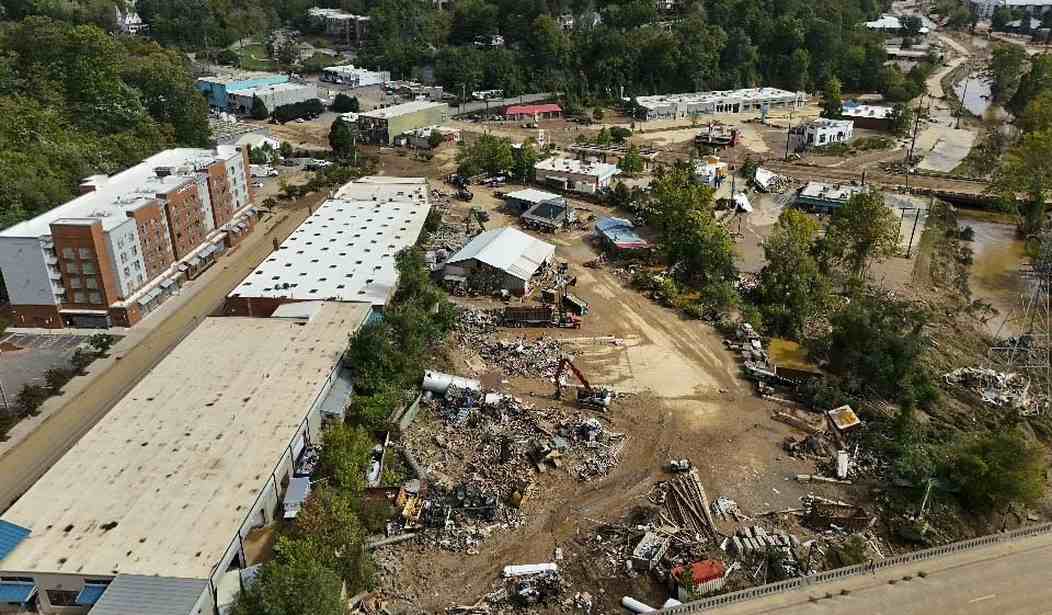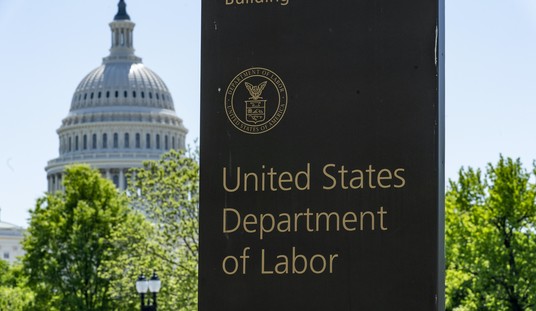Much of the eastern United States is still recovering from Hurricane Helene. The storm was horrible; the aftermath is revealing just how bad this event was. Lives were lost, homes were destroyed, and properties were damaged beyond repair. The recovery may take months; it may take years. Our hearts go out to the victims of Helene, and we celebrate the courage and determination of the aid and rescue workers who are even now digging through the mess made by this storm.
Even as the people in Helene's path are still digging out, the usual suspects are attempting to leverage this tragedy to promote a political agenda. Climate scolds are claiming that anthropogenic climate change made Helene uniquely destructive. The problem is, they're wrong; Helene's impact was horrible, but if we are going to discuss public policy, we must set aside emotional responses and sympathy for the victims and rely on an objective analysis of data.
Spiked Online's Andrew Montford has that data, and it shows that Helene wasn't uniquely dangerous.
The BBC has described Helene as ‘one of the biggest ever storms to hit the US Gulf Coast, with wind gust speeds of 140 mph’. That’s true, but it is still quite a long way behind the 150mph of Camille in 1969, or the 160mph of the Labor Day hurricane of 1935, both of which hit the US before climate change was deemed a major concern.
We can go back even further, of course, to the Galveston hurricane of 1900, which is the deadliest natural disaster in American history, with 145 mph winds, resulting in between 6,000 and 12,000 fatalities. That storm affected the Dominican Republic, Cuba, the Turks and Caicos Islands, the Bahamas, the United States Gulf Coast, the central Midwest, the mid-Atlantic states, New England, and eastern Canada. That storm cut a swath of damage across North America at a time when nobody had even thought about anthropogenic climate change.
Forecasters didn't even get 2024 completely right:
This year, with the Earth experiencing a temperature spike, there was near unanimity among forecasters that the Atlantic would experience a remarkable jump in hurricane activity, with one news outlet saying this would be a ‘supercharged’ hurricane season. However, the reality thus far, with two-thirds of the season behind us, is that it has been no more eventful than average.
In other words: The Earth's climate, the global climate, remains as it has been, an inconceivably vast and chaotic system with trillions of inputs and outputs. One of the reasons that the Atlantic hurricane season was milder than expected? Unexpected rainfalls in the Sahara Desert, half a world away from the path of Hurricane Helene. There is no set of projections or computer models that can accurately predict these systems; it's difficult for weather forecasters to get local weather right more than a few days out, so it should be no surprise that models attempting to predict global trends often get things wrong when they don't even know all the possible inputs.
That hasn't stopped climate scolds from pushing for us to surrender our modern technological lifestyle, and they will also cite rising damage from storms to bolster their case; the problem is, that's also a canard.
Nor are hurricanes causing more damage than they used to, although activists like to claim the opposite. To do so, they usually rely on data that hasn’t been corrected for two confounding trends – the growing populations in the path of hurricanes and their growing wealth. Far more people, and far more wealth, is concentrated in places like coastal Florida than 100 years ago, leading to what Bjorn Lomborg calls the ‘expanding bullseye effect’, which gives the impression of more frequent and worse hurricanes, despite what the data actually show.
In other words, there are more and more valuable properties in the regular paths of Atlantic hurricanes; for better or worse, those are the facts. If a storm destroys a $100,000 house, and then a new owner builds a $1,000,000 house on the same property, which is then likewise destroyed in the next storm - one might accurately claim that the second hurricane caused ten times the damage in terms of dollars.
But that's not an accurate assessment of the two storms.
See Related: Americans Coming Together: The Silver Lining in a Hurricane's Cloud
'It Just Fits a Larger Pattern': Harris Blows Off Hurricane Preparedness Briefings for Photo Ops
Look, none of this is intended to downplay the suffering of Helene's victims or their families. None of this is intended to detract from the courage and commitment of the rescue and aid workers who have so bravely answered the call.
But when we discuss public policy, we must discuss not emotion, but data. Policy should be - nay, must be based on a dispassionate, unbiased, objective analysis of facts. That is the opposite of what climate scolds, in and out of government, are doing - and their policy proposals would end up with the diminishment, if not the outright deletion, of our modern technological lifestyle. And that's something we cannot permit.















